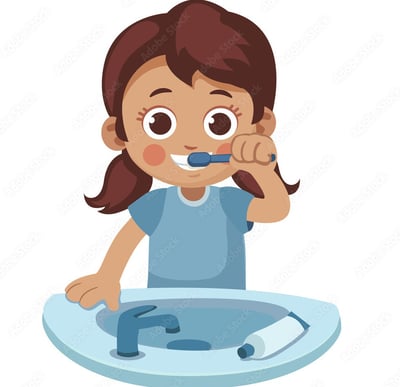Debunking Common Myths About Children's Teeth
Exposing myths about children's dental health is crucial to ensure children maintain a healthy oral cavity. By understanding the importance of baby teeth, early dental visits, fluoride, and the impact of habits like thumb-sucking helps parents establish good oral hygiene practices early on, promoting long-term dental health for their children.
Children's dental health is often surrounded by myths and misconceptions. These misconceptions can lead to confusion and may even impact how parents care for their children's teeth. Let's debunk some of the most common myths about children's teeth and set the record straight.
Myth 1: Baby Teeth Aren't Important
Fact: Baby teeth play a crucial role in a child's development. They help with chewing, speech development, and guide the permanent teeth into their proper positions.
Myth 2: Cavities in Baby Teeth Don't Matter
Fact: Cavities in baby teeth can have serious consequences. Untreated cavities can cause pain, infection, and may even lead to premature tooth loss if left untreated. Additionally, decay in baby teeth can affect the health of permanent teeth developing beneath them. unless a baby tooth is about to exfoliate, dental decay needs to be treated
Myth 3: Children Don't Need to See a Dentist Until They Have Permanent Teeth
Fact: It's recommended that children see a dentist by their first birthday or within six months after their first tooth erupts. Early dental visits help monitor development, identify any issues early, and establish good oral hygiene habits.
Myth 4: Fluoride Is Harmful to Children
Fact: Fluoride is safe and effective in preventing tooth decay in children when used appropriately. It strengthens tooth enamel and helps protect against cavities. The American Dental Association recommends fluoride toothpaste for children as soon as the first tooth erupts. See ADHA article on types of fluoride.
https://www.adha.org/hygienist-hub/caries-prevention-youngest-patients/
Myth 5: Baby Teeth Will Naturally Fall Out, So Oral Care Isn't Necessary
Fact: While baby teeth do eventually fall out, it's essential to maintain good oral hygiene habits from an early age. Teaching children proper brushing and flossing techniques and encouraging healthy habits sets the foundation for a lifetime of good oral health.
Myth 6: Thumb-Sucking and Pacifier Use Won't Affect Dental Health
Fact: Prolonged thumb-sucking or pacifier use can affect dental development, leading to misaligned teeth or bite issues (malocclusion). It's essential to encourage children to stop these habits by age 3 to prevent dental problems.
Debunking myths about children's teeth is crucial for promoting proper dental care and maintaining good oral health. By understanding the facts and implementing preventive measures early on, parents can help their children develop healthy smiles that last a lifetime. Regular dental check-ups and proper oral hygiene practices are key to ensuring optimal dental health for children.


